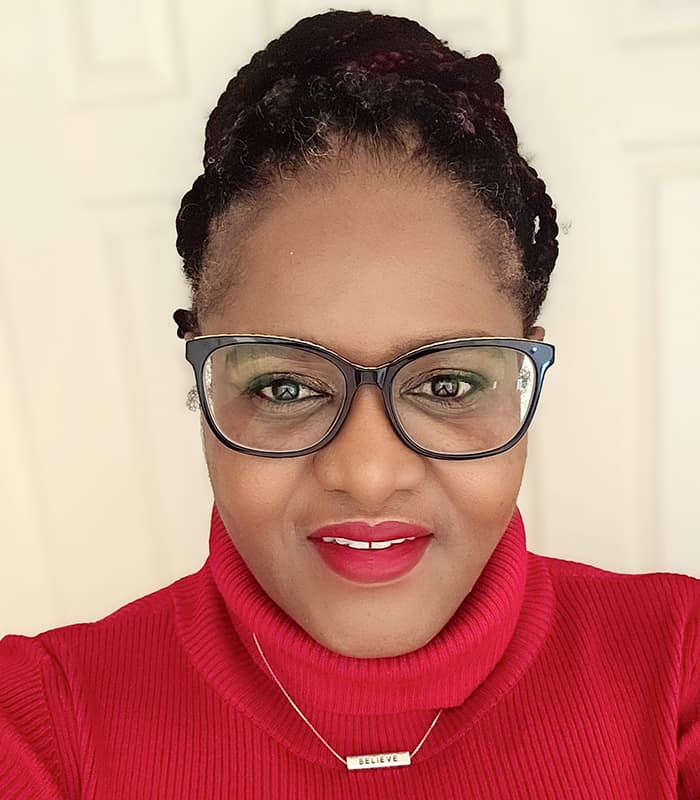This website uses cookies so that we can provide you with the best user experience possible. Cookie information is stored in your browser and performs functions such as recognizing you when you return to our website and helping our team to understand which sections of the website you find most interesting and useful.
This International Women’s Day, we asked some of our staff to reflect on this year’s theme of investing in women to accelerate progress. Read on to learn how they’ve invested in women, how others have invested in them, and what more needs to be done to increase gender equity. We are proud of the work our staff do every day to create a more equitable world for all.
Nadège Djitrinou Fagla
Country Director, World Education
Benin
Investing in women means reducing poverty and conflicts and ensuring a better future for all.
What does investing in women mean to you? What are the benefits?
Investing in women means equipping them with the resources and opportunities to promote their personal and economic growth, fulfillment, and empowerment. This means providing women with training and financial support and creating platforms where they can express themselves and enact change while maintaining their autonomy and dignity.
Investing in women has many benefits. For example, there is often a multiplier effect, as women will prioritize a good education for their children and share their knowledge with their communities. Women increase trust because they rarely misuse funds. Because of their central role in social dynamics, they can identify and implement effective solutions to societal challenges. They are also the source of social cohesion. When women have power, there are fewer conflicts, less violence, and more harmonious communities and countries.
How have you invested in other women or girls?
At World Education, we promote girls’ education, gender equality, and women’s leadership. In Benin, we have created over 600 mothers’ associations that serve as our entry point for educational and women’s empowerment activities.
How have others invested in you?
My parents financed my education up to university. They were instrumental in instilling confidence in me in several ways. In college, I had an educator who noticed my shyness and helped me overcome it by regularly forcing me to speak in public. When I started working for World Education in 2000, I had a supervisor who allowed me to take initiative, enabling me to explore my abilities and know my limits. He showed me that limits exist because we set them.
What progress has been made for women? Where would you like to see more progress?
The government of Benin has established a National Institute for Women. There are laws against sexual harassment, early marriage, female genital mutilation, and gender-based violence, among other gender-related crimes. There are myriad programs that help women obtain financing for economic activities.
Today, women are more able to voice their opinions in public. In addition, several have formed associations to conduct income-generating activities. Women also now take on some household expenses, especially those related to children’s education.
I would like to see more programs that support women’s literacy, financial empowerment, and access to land for agricultural activities (for example, market gardening and growing maize, soya, or millet). Gender equality and empowerment are not possible without economic autonomy. I would like to see more personal development programs and leadership training opportunities for women in areas like public speaking, business management, and communication.
What are you most proud of in your work?
I am proud to have helped give women a voice in the communities where we work because they are the ones closest to the children. I’m also proud to have demonstrated that women excel when they are involved in projects and initiatives.
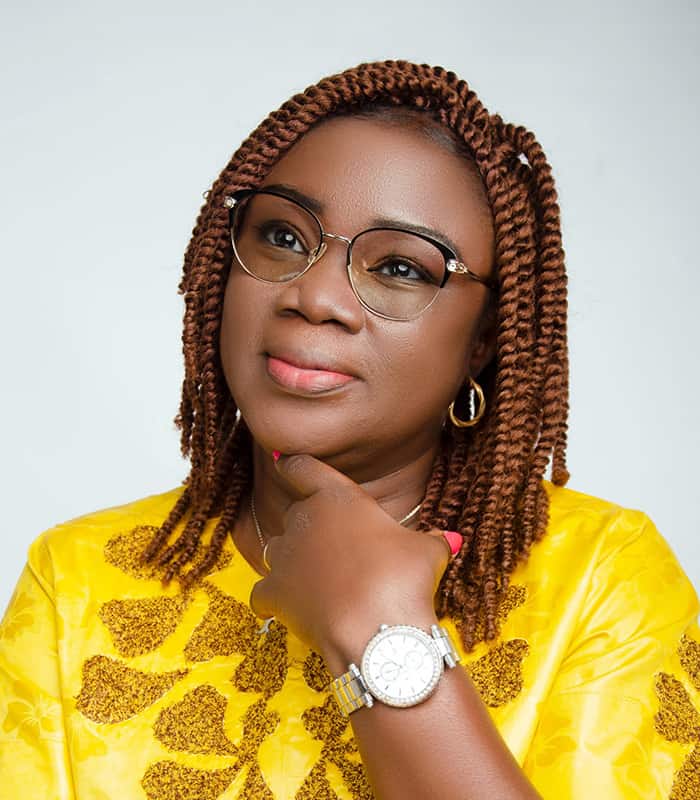
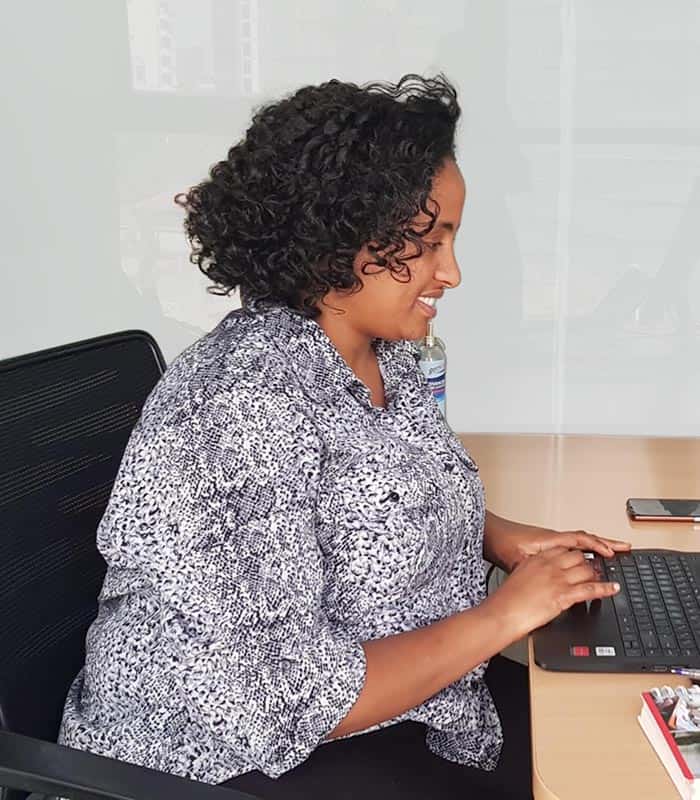
Selamawit Meressa
Monitoring, Evaluation, Learning, and Gender Advisor, Digital Health Activity (DHA)
Ethiopia
On this International Women’s Day, let’s dedicate our resources to ensure that our investments and programs increase women’s participation at every level. Let’s empower young women to engage in the development and implementation of various digital health tools and health information systems, to make decisions, and to find solutions to women’s health challenges.
What does investing in women mean to you? What are the benefits?
Investing in women means ensuring that more than half the global population is not left out of any economy, health program, or development opportunity. Investing in women also means contributing to an educated, healthier, and wealthier generation.
Investing in women benefits society as a whole. The right investments release women’s untapped potential and empower them to voice their opinions, share their ideas, and make important decisions.
What progress has been made for women? Where would you like to see more progress?
In Ethiopia, the government committed to having 50 percent of political leaders be women. This motivated women to take leadership positions, and those in leadership to invest in other women. Today, of course, we have the wonderful example of Sahle-Work Zewde, Ethiopia’s first female president. She is a national icon and an inspirational woman.
However, women’s participation in fields related to math and digital technology remains low. I would like to see more women participating in the development of digital health tools.
Childbirth should not prevent women from participating in the workforce. We should invest in initiatives that support working mothers, such as flexible hours and the ability to work from home. This is an area that requires significant improvement in my society and many organizations, including JSI. We also need to consider mentoring and professional development and create opportunities for women to learn from each other.
How have you invested in other women or girls?
We created a designated office space where JSI staff can breastfeed and safely store their equipment and breast milk. We also established a flexible work environment that allows women to work from home during their menstrual periods, helping ensure their health and comfort while working.
Digitalization provides several benefits for women. For example, community health workers—who are primarily women—go house-to-house in rural areas, covering long distances to deliver health services. Previously, they carried stacks of paper with health information on their backs. Digitalization has significantly reduced the physical burden of their work by reducing the amount of paper used.
We also created and introduced an eLearning platform to support health workers’ professional development. Many female health care providers are reluctant to attend trainings that require traveling away from their children and families. This free platform allows women to enhance their skills and knowledge from their homes.
What are you most proud of in your work?
My work has included a collaboration with the Ethiopian Ministry of Health and other partners to assess the gender divide in digital health. Through our study, Gender Digital Health-Health Information System Divide in Ethiopia, we found that no consideration was given to women’s participation when designing, developing, and implementing digital health and health information systems. We developed a national strategy, Gender Mainstreaming Within Digital Health and Health Information Systems in Ethiopia, which will help ensure investments in digital health and health information systems consider women’s health needs and priorities. Our findings and strategy can be applied in other countries, according to the local context, to encourage investments that support better health outcomes for women.
Nercia Manjate
Program and Partnerships Coordinator, USAID Improved Learning Outcomes in Primary Education (SABER)
Mozambique
Dear women, a step ahead has more effect than standing still. When stepping toward change, do it firmly, and the world will surely tremble!
What does investing in women mean to you? What are the benefits?
Investing in women means creating or transforming a system to respond to women’s needs and improve their quality of life.
Women lift up their families and communities, so investing in women generates benefits beyond the individual. Women tend to invest in their children’s education, nutritious crops, and small business opportunities. Investing in women can therefore improve literacy rates and reduce hunger and poverty.
What personal experience do you have with investments in women?
When I was a math teacher, I established programs to bolster girls’ self-confidence and created opportunities for youth leadership. As a result, my students overcame stigma and graduated in fields they might not otherwise have explored, including engineering, computer science, mechanics, and political science.
How have you invested in other women or girls through your work?
At World Education, we work to improve access to high-quality education. In many communities where we work, women in particular have low literacy rates, high birth rates, premature unions, infant mortality during childbirth, and malnutrition. In this context, I strongly encourage girls to go to and stay in school and guide them to become role models in their community. I also work on reporting mechanisms that give women and girls autonomy over their own bodies.
What progress has been made for women? Where would you like to see more progress?
In Mozambique, there has been progress on legal protections for women. For example, women employed in the formal sector have the right to maternity leave and flexible work hours so they can breastfeed. In addition, men can take paternity leave to help after a child’s birth.
These legal protections represent great progress. But we need additional investments to eliminate harmful social practices that increase child mortality rates. Specifically, we need to enforce the 2019 law against premature unions (before age 18) and report and prevent violence against women and girls. We also need more vocational training programs for women, especially in peri-urban communities, to increase their income-generating opportunities, and we need more women in decision-making positions at the community level.
What are you most proud of in your work?
I am proud to be a woman who helps break down barriers and is a role model to others. I am thrilled to see women work hand-in-hand with men, sharing responsibilities and making decisions. I am also proud of my role in encouraging women and girls to think creatively and promoting their societal contributions.
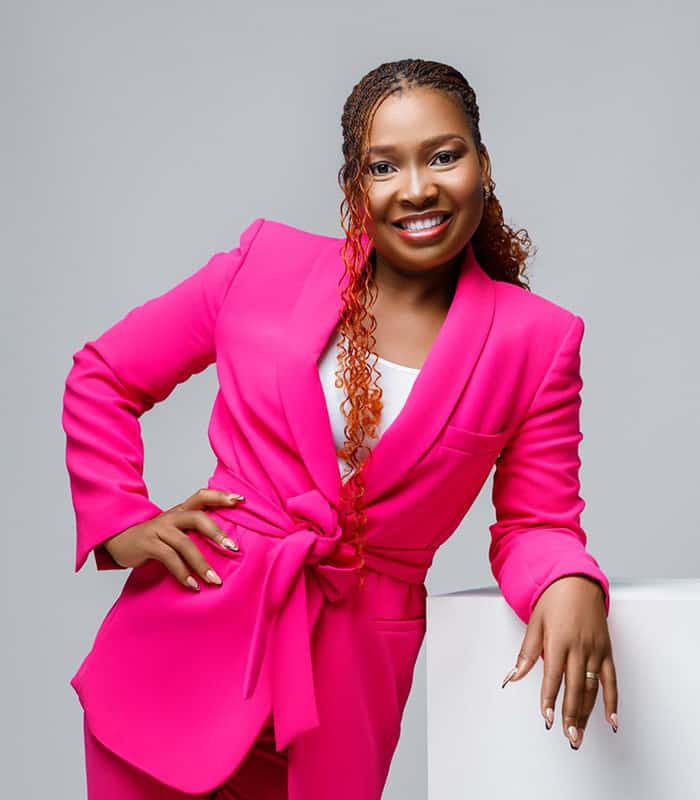
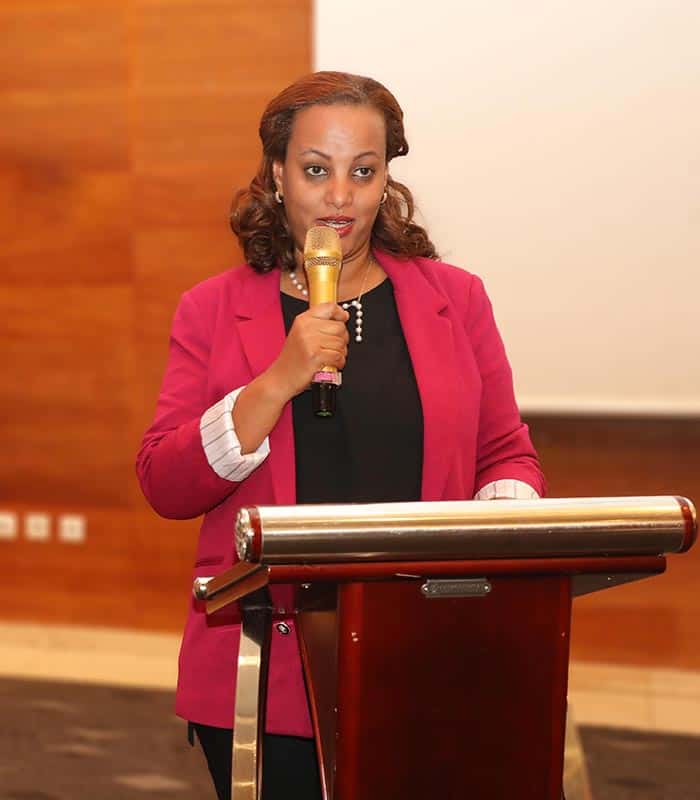
Hiwot Belay
Senior Advisor, Center for Health Information Monitoring and Evaluation (CHIME)
Ethiopia Data Use Partnership (DUP)
Ethiopia
We must advance equitable, inclusive, and resilient health systems that ensure responsive care for women. Investing in women’s health is not just about achieving health equity; it is also an opportunity to enhance women’s involvement in the workforce and decision-making.
What does investing in women mean to you? What are the benefits?
Investing in women goes beyond financial considerations; it means deliberately allocating resources and creating opportunities that promote women’s overall well-being, empowerment, and progress in all facets of life.
When women are supported and empowered, they can make informed decisions about their households, leading to enhanced economic stability and overall prosperity. This, in turn, improves living standards, creating a foundation for enhanced societal well-being on a broader scale. Women are catalysts for positive change, influencing social dynamics and community engagement.
How have you invested in other women or girls?
I am working with DUP leadership to create gender-sensitive and -responsive health information and digital systems. Our goal is to have a health care system that meets the unique health needs of different genders and promotes equitable health outcomes for all. We encourage women’s leadership in the traditionally male-dominated field of health information systems. We aim to empower women for success in data-related roles through customized training, mentorship, skill-building workshops, and access to resources.
I’ve also had the opportunity to mentor and guide junior female DUP staff to grow into their roles and careers.
What strengths and capabilities do women provide in your community?
Women in Ethiopia often face significant challenges, including limited access to education, health care, and economic opportunities. Despite these challenges, they demonstrate resilience and perseverance, often taking on multiple roles and responsibilities to ensure the well-being of their families and communities. Women are often the pillars of their families and communities, providing crucial social support networks. They care for their families, provide essential labor, foster community cohesion in different traditional groups like “Idir,” and share valuable traditional knowledge and skills. Within the health care system, women health extension workers provide basic services in rural and remote areas, where limited access to health facilities negatively affects health outcomes. Women in Ethiopia bring strengths and capabilities to their communities that are essential for sustainable development and social progress.
What progress has been made for women? Where would you like to see more progress?
In Ethiopia, there has been increased access to education and training, health care, and economic opportunities for women. There are also efforts to change discriminatory laws on marriage, divorce, inheritance, and property rights. To accelerate progress, we need greater investments in gender-responsive programs and policies and increased efforts to change harmful gender stereotypes and promote women’s rights. Empowering women and girls is not just a matter of equality; it is also a key driver of overall well-being and sustainable development for the entire country.
Tabeth T. Jiri
Epidemiologist and Senior Consultant
Co-Director, Evaluation and Research Group
United States
Today and every day, let us stand in solidarity with women everywhere, empower them, amplify their voices, acknowledge their resilience, celebrate their achievements, and continue to strive for gender equality and justice for all.
What does investing in women mean to you? What are the benefits?
Investing in women means empowerment. It means giving women the opportunities and tools to realize their full potential and creativity.
In my culture, we often say, “to educate a girl child is to educate and empower a generation.” I believe women are the backbone of society. Investing in women benefits not only women; it also benefits their families and communities.
What personal experience do you have with investments in women?
I am the first woman in my family to earn a postgraduate degree, and I am grateful to my parents for giving me that opportunity. Neither of my grandmothers finished school, but they both believed in education and taught everyone in our family to work hard. My mom is my biggest inspiration. A few years ago, she completed her undergraduate degree in accounting at the age of 56.
How have you invested in other women or girls through your work?
I help women be seen by telling their stories through data. I advocate for and help educate women about their right to a healthy life.
What progress has been made for women? Where would you like to see more progress?
Globally, more policies have been put in place to protect and advance women’s rights and gender equality. But barriers to women’s economic and social progress remain.
I would like to see more policies and investments that improve women’s access to high-quality health care, especially for maternal and child health. This includes reproductive health and prenatal care, and I would particularly like to see reduced maternal mortality in communities of color. We should also expand research to improve women’s health. I’d also like to see paid maternity and sick leave.
Beyond health care, we need to do more to prevent gender-based violence and support survivors, including through access to legal and support services. We also need to support women in business and the workforce, including fair compensation, access to capital, and mentorship programs. Leadership is key. In general, I would like to see increased leadership opportunities for women in every aspect of life, including politics, public health, science, business, the arts, and the home.
What are you most proud of in your work?
Working in public health and research has allowed me to advocate for women’s health and advance equity. As an epidemiologist, I have been able to research women’s health issues, including disparities in health outcomes and disease risk factors, and evaluate the effectiveness of interventions, thereby informing policies and programs aimed at improving women’s health.
